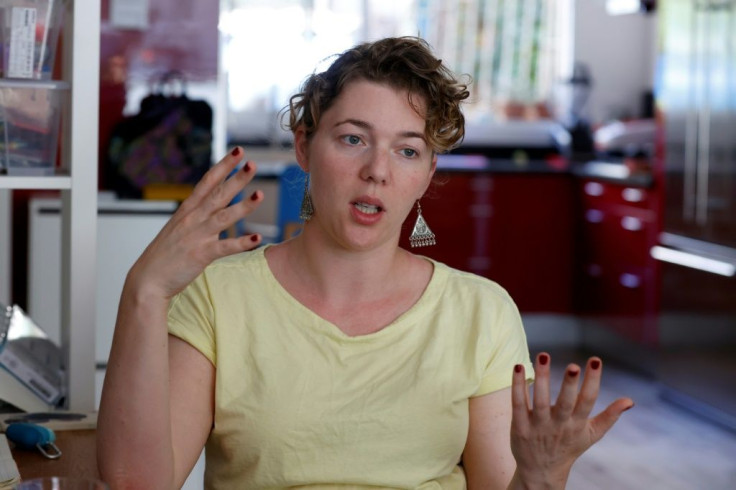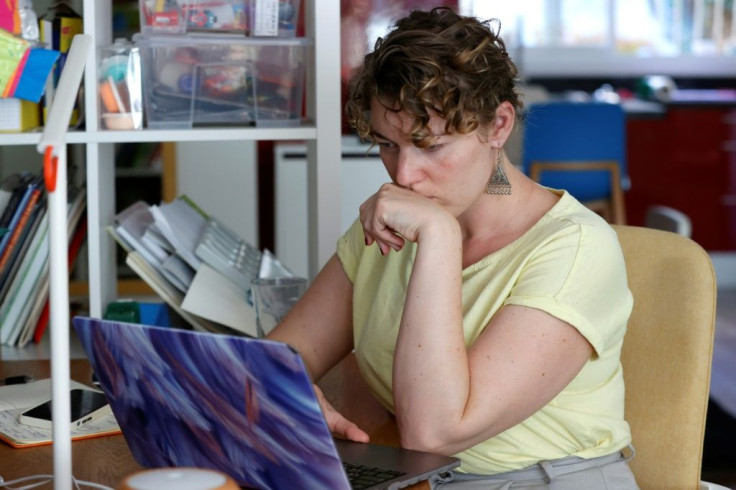'Nobody Is Safe' In Belarus, Says Independent Media Heiress Behind Tut.by
The heiress to Belarus' largest independent news outlet, Evgeniya Chernyavskaya, says her country's widening crackdown on media and opposition has imperilled freedom of speech -- and threatened lives.
"Nobody is safe now in Belarus -- especially journalists," says the heiress to Tut.by, the news outlet whose survival is now fragile, after members of its team were detained after office and home raids.
On May 18 authorities blocked the site after searching and closing its offices and arresting 12 people, including several journalists and Yulia, Chernyavskaya's mother.
Officially it was a tax evasion investigation -- but Chernyavskaya has no doubt that her country's most popular independent news site was targeted as part of Belarusian leader Alexander Lukashenko's crackdown, that followed mass protests in 2020 against his rule.
Chernyavskaya, whose late father Yuri Zisser founded the news site, has been organising remotely from Tel Aviv in Israel, where she has lived for five years.
In Belarus "there is no freedom of speech, no freedom to access information", the 33-year-old entrepreneur said, who until the raids had maintained a low profile.

"Belarus definitely has a dictatorship today -- it got worse during the last year, and it's very dangerous," she told AFP.
"Even people who go to the store to buy bread, they are unsafe, because they could be stopped, and their phone could be checked."
The country's stifling of dissent escalated Sunday, when Belarus triggered international fury in arresting opposition blogger Roman Protasevich, after intercepting his Ryanair flight.
"I would not be surprised if during the next two weeks, we will see that they just turn off the internet in Belarus," Chernyavskaya said.
During the height of demonstrations last summer Belarus curbed internet access with "blackouts," which readers worked to bypass by relying on encrypted Telegram messaging as a tool of information and mobilisation.
Chernyavskaya voiced hope that the recent acceleration of repressive measures could precipitate Lukashenko's fall, after 27 years in power.

"The more stupid and unbelievable and hard" things get in Belarus, the more it "destroys the power" of the regime, she said, speaking in English.
She added she hopes that is the case, "because the other scenario is North Korea."
Chernyavskaya, speaking from her Tel Aviv apartment some 2,500 kilometres (1,55 miles) away from Minsk, said she worries that airing these concerns could have consequences for her family, friends and employees.
They are at the mercy of the Belarusian Financial Investigation Department -- part of the State Control Committee body regularly dispatched to attack the regime's critics.
But the entrepreneur is spending her waking hours working to circulate news and photos using the primary tool left -- social media.
The 20-year-old Tut.by, the biggest independent media in Belarus, has "never been in the opposition", she said -- adding that the country doesn't truly have "an opposition."
"It's just the government and the rest of the people against it," she said.
With its website, social media and through Telegram messages, Tut.by's newsroom offered in-depth coverage of the 2020 demonstrations and the repression that followed, in particular the jailing and forced exile of journalists and state dissidents.
The news site was already under judicial scrutiny.
On March 2, a court slapped journalist Katerina Borisevich -- who was accused of leaking medical records of a protester who died during the rallies -- with six months in jail.
"People were shot in the street, and we reported about it," said Chernyavskaya.
According to her, even the regime's traditional supporters are tired.
Even "the oldest women" in the most rural area "doesn't believe in Lukashenko anymore," she said.
© Copyright AFP 2024. All rights reserved.





















